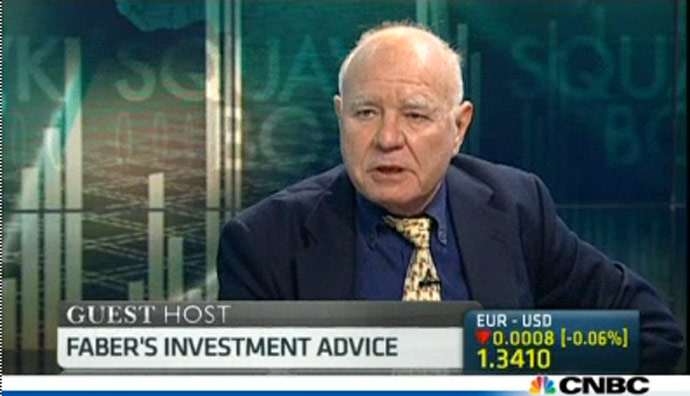Marc Faber Says We’re Worse Off Now Than During The 2008 Crisis
According to Marc Faber, the editor and publisher of The Gloom, Boom & Doom Report, the economy is in a more vulnerable state than it was back in 2008. We experienced a heavy recession in 2008, with the housing bubble bursting and many investors left high and dry, but Faber says this time it could be worse.
Credit Crisis Looming
Faber told CNBC that a credit boom in places like China could be an indicator of a weakening economy elsewhere. He believes the world is in a more dangerous position economically than it was in 2008, when the global financial issues forced a recession upon us.
He said, “If I am telling you that we had a credit crisis in 2008 because we had too much credit in the economy, then there is that much more credit as a percent of the economy now.”
Faber cited a report by William White, the former chief of the Bank for International Settlements. The report claims that total credit in advanced economies is up by 30 percent as a share of GDP than back in 2007, just before the financial crisis hit.
Faber said of the situation, “So we are in a worse position now than we were back then.”
China’s Credit Boom Could Be A Major Blow To Global Economy
Other economists have noted concerns regarding the accelerated credit growth in China, stating that this could pose a major risk to the economy. China is currently the second-largest economy in the world and a crash there could tip the entire world back into a recession.
China has taken steps in the last few months to attempt to contain the credit boom, by tightening the credit that is available for banks in the money markets. However, Faber has also noted his distress over household credit in the Asian market area.
Government debt has not gone up that much but household debt has,” Faber stated. “In Thailand, where I spend a lot of time, we have had no recession, but we have had no growth either. It’s the same in Singapore and Hong Kong.”
Singapore reportedly has one of the highest levels of household credit in relationship to GDP in Asia. It is up from 63 percent in 2010 to 75 percent currently. This is mostly due to lowered interest rates, which boosted borrowing from the population.
“Why are so many product prices in Singapore and Hong Kong more expensive than in the U.S.? It’s because when you have asset inflation and high property prices, shops have to pay higher rents, so they charge more for their products. So asset inflation can flow into consumer inflation.”
Faber believes we will see a crisis before long if credit is not curbed in these markets.
It will end badly and the question is whether we will have a minor economic crisis and then huge money printing or get into an inflationary spiral first,” he said.
Watch the video of Faber’s statements below.










































